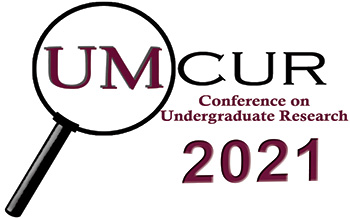Project Type
Presentation
Faculty Mentor’s Full Name
Lauren Collins
Faculty Mentor’s Department
Davidson Honors College
Abstract / Artist's Statement
James Baldwin is known as a civil rights activist, novelist, and accomplished orator, his words reaching students across college campuses during the civil rights movement of the 1960’s and today. Not only was Baldwin a spokesman for civil rights, his body of work reflects a pedagogical stance of emancipatory education, encouraging active learning and visualizing the process of education as one of revolution divergent from societal expectations. Through close readings of the works of James Baldwin, reflections on my experiences as a University of Montana Undergraduate Learning Assistant, and a personal paradigm shift resulting from a semester of research study into carceral justice in the United States, I explore the ideas of educational partnership and reciprocity in a new age of civil rights crisis, as well as the shifting, increasingly specialized and monetized context of higher education. Through the lens of Baldwin’s collected essays, The Fire Next Time, Living and Growing in a White World, A Talk to Teachers, and Paulo Freire’s Pedagogy of the Oppressed,I explore possible epistemic and social implications for a generation of students educated by and for an increasingly fractured sociopolitical setting. Higher education frameworks based solely in concepts of career preparedness and personal advancement may function to estrange minoritized populations and exclude non-dominant bodies of knowledge. In response to civil rights movements of the past, universities have responded with calls for equity, but Baldwin and Freire call rather for educational reciprocity. Students from marginalized groups, especially those of native backgrounds, may face cultural erasure and educational assimilation through equitable but not reciprocal teaching methods. Baldwin speaks to this issue, warning against classrooms that homogenize rather than diversify. This paper argues for continued and expanded inclusion of Baldwin’s works in university curricula and ponders the practical applications of his radical teaching practices for undergraduate peer educators to increase inclusivity and student re-humanization through reciprocal teaching methods.
Category
Humanities
The Pedagogy of James Baldwin; What Undergraduate Peer Educators Stand to Learn from Emancipatory Teaching Processes
James Baldwin is known as a civil rights activist, novelist, and accomplished orator, his words reaching students across college campuses during the civil rights movement of the 1960’s and today. Not only was Baldwin a spokesman for civil rights, his body of work reflects a pedagogical stance of emancipatory education, encouraging active learning and visualizing the process of education as one of revolution divergent from societal expectations. Through close readings of the works of James Baldwin, reflections on my experiences as a University of Montana Undergraduate Learning Assistant, and a personal paradigm shift resulting from a semester of research study into carceral justice in the United States, I explore the ideas of educational partnership and reciprocity in a new age of civil rights crisis, as well as the shifting, increasingly specialized and monetized context of higher education. Through the lens of Baldwin’s collected essays, The Fire Next Time, Living and Growing in a White World, A Talk to Teachers, and Paulo Freire’s Pedagogy of the Oppressed,I explore possible epistemic and social implications for a generation of students educated by and for an increasingly fractured sociopolitical setting. Higher education frameworks based solely in concepts of career preparedness and personal advancement may function to estrange minoritized populations and exclude non-dominant bodies of knowledge. In response to civil rights movements of the past, universities have responded with calls for equity, but Baldwin and Freire call rather for educational reciprocity. Students from marginalized groups, especially those of native backgrounds, may face cultural erasure and educational assimilation through equitable but not reciprocal teaching methods. Baldwin speaks to this issue, warning against classrooms that homogenize rather than diversify. This paper argues for continued and expanded inclusion of Baldwin’s works in university curricula and ponders the practical applications of his radical teaching practices for undergraduate peer educators to increase inclusivity and student re-humanization through reciprocal teaching methods.
